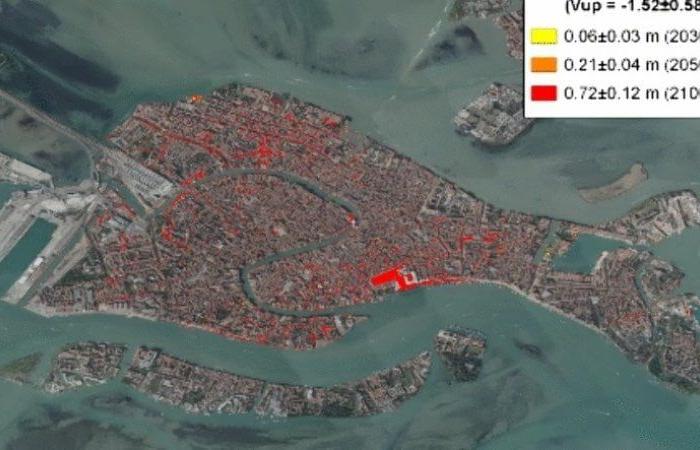The importance of local populations, stakeholders and policy makers in coastal areas being aware of sea level rise as one of the main effects of climate change is the focus of a publication edited by researchers from the National Institute of Geophysics and Volcanology (INGV) in collaboration with the Radboud Radio Lab, Department of Astrophysics, Radboud University, Nijmegen, Holland, the Isotech Ltd Environmental Research and Consultancy of Cyprus, the Center for Integrated Geomorphology for the Mediterranean and the City of Venice in the magazine ‘Rendiconti Lincei by Springer’.
In the study the authors analyze sea level rise in the Mediterranean, which is already having effects on low-lying coastal plains, river deltas, lagoons and land reclamation areas. In particular, for the Venice lagoon, the current and future impacts of climate change and subsidence are highlighted and the importance of awareness among local stakeholders in addressing the challenge of sea level rise and extreme weather events.
“Sea level rise, particularly if this is accelerated locally by subsidence, is causing increasingly severe and widespread coastal erosion, beach retreat and marine flooding with very important environmental and socio-economic impacts on coastal populations”, says Marco Anzidei, INGV researcher and first author of the study.
According to projections from the Intergovernmental Panel on Climate Change (IPCC), the effects of sea level rise are expected to progressively increase by 2150 to around 1.5 metres. In this extremely critical context for most of the coasts, the study focused on Venice, a city particularly exposed to this phenomenon which is amplified here by subsidence.
“The results of the study highlight the current and future trend of sea level and the possible flood scenarios in the event of the absence of the protection provided by the Experimental Electromechanical Module (MoSE) which since 2020 has successfully protected the city of Venice from the increasingly numerous events of high water.
To understand the awareness of the citizens of Venice in addressing sea level rise, a group of stakeholders was involved through a structured participatory process, to develop policy tools oriented towards specific solutions. Our results demonstrate that policy instruments contain relevant, effective and actionable actions resulting from stakeholder interaction and consensus building, identifying relevant issues that should be taken into consideration for adaptation policies,” says Marco Anzidei.
Studies highlight that broader participation in public processes is desperately needed to translate policy tools into concrete actions that help vulnerable areas adapt to sea level rise expected by the end of this century.
“The results of the latest research show the high exposure of the Mediterranean coasts to the effects of sea level rise and extreme meteorological effects triggered by recent global warming linked to human activities,” adds Tommaso Alberti, co-author of the study.
In this complex picture, which includes the dynamics of the solid and fluid Earth, stakeholders lack relevant and easily understandable scientific information on the current impacts and evolution of climate change.
“It is therefore important to investigate the perceptions of stakeholders on the specific mitigation and adaptation practices to be adopted in the vulnerable areas of the Mediterranean and – for this specific study – in the Venice lagoon, in order to fill the knowledge gaps not only in terms of raising of the sea level but also of adaptation solutions to best practices to face this challenge. This experience has taught us that an increasingly broad participation in public processes is necessary to translate political tools into concrete actions to help the most vulnerable areas adapt to the sea level. ‘increase in sea levels’, concludes Marco Anzidei.
Link to the study
https://link.springer.com/article/10.1007/s12210-024-01236-x?fbclid=IwAR31nhi0T1nqm2BafkzJ7A8FzROfnC5jjlpzLQhOHfYgZhH_oxRu8Ouq2Ns






